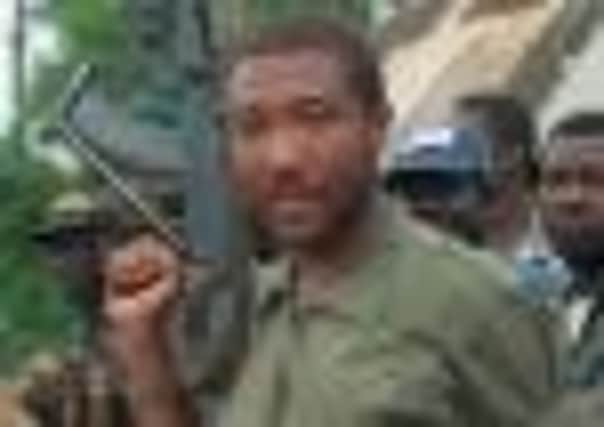Judgment day for presidentmired in civil war atrocities


“They put my arms on the sticks, took machetes, and cut them… They only thing I can tell you about Charles Taylor: I heard from the RUF who amputated my hands that they were his supporters,” Mr Ngaujah, 46, said.
In an 11-year conflict which by 2002 left over 50,000 dead and had become a byword for gratuitous violence, “short sleeves” was the term used to distinguish amputations at the elbow from “long sleeve” cuts at the wrist.
Advertisement
Hide AdAdvertisement
Hide AdOn Thursday, judges at an international war crimes court in The Hague will pass judgment on warlord-turned-Liberian president Taylor, 64, who is accused of sponsoring rebels responsible for untold atrocities during Sierra Leone’s civil war in return for “blood diamonds”.
The historic verdicts at the Special Court for Sierra Leone will mark the first time an international tribunal has reached judgment in the trial of a former head of state since judges in Nuremberg convicted Admiral Karl Doenitz, who led Germany after Adolf Hitler’s suicide.
Prosecutors allege Taylor, from his base in neighbouring Liberia, directed and armed the Sierra Leonian rebels and so bears responsibility on 11 counts including murder, mutilation, rape, enslavement, and recruitment of child soldiers.
“The Sierra Leone conflict was brutal, and Charles Taylor was seen as a ‘Big Man’ in the region,” said Elise Keppler, senior counsel at Human Rights Watch. “Regardless of the verdict, this will send a clear signal that people implicated in the worst crimes will face justice no matter how important or powerful they are.”
Former Special Court of Sierra Leone lawyer Sareta Ashraph argued that even if a link between Taylor and RUF rebels is demonstrated, it would be harder to show he had a lead role in the late-1990s period covered by the court.
“It difficult to see the motivation for putting himself in charge of the RUF,” said Ms Ashraph, who is writing a history of the Sierra Leone war.
“He was already president of Liberia, was making money off them and would have realised the best the RUF were going to do is force a stalemate.”
Rebels and government signed a 1999 peace deal but fighting continued for nearly three years until the RUF was defeated with help from former colonial power Britain and UN forces.
Advertisement
Hide AdAdvertisement
Hide AdWhile Taylor, 64, was deemed enough of a menace to West Africa’s stability that his trial was moved to The Hague after his March 2006 arrest during exile in Nigeria, his present-day influence is harder to define.
The region is still plagued by mercenaries. But militant Islamists such as Nigeria’s Boko Haram or al-Qaeda agents in the Sahel zone are now the bigger threat, alongside the narcotics trade.
For prosecutors, the challenge has been to show a link between Taylor and crimes in Sierra Leone. Much depends on the evidence of seven radio operators who allegedly kept him in touch with rebel groups. Taylor denies having any role.
“We did hear of certain actions that were going on in Sierra Leone that … were a little strange to us, because these things were not happening in Liberia,” he said at the trial.
Taylor took the witness stand for seven months during his trial.. As he awaits the verdict, he has immersed himself in study of the Jewish faith to which he converted before arriving in the Hague. He has regular visits from a rabbi.
His library – now in storage – had occupied a room at the detention facilities used by the tribunal and the International Criminal Court, where he is said to maintain cordial relations with old enemy Laurent Gbagbo, the former Ivory Coast leader transferred there last year to face charges of crimes against humanity.
If convicted, Taylor will serve his sentence in Britain.